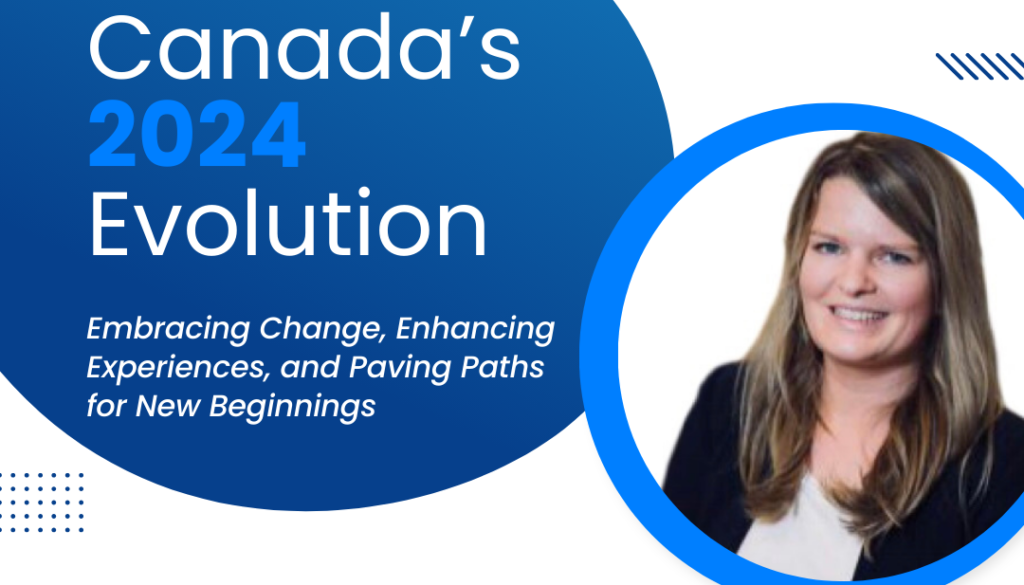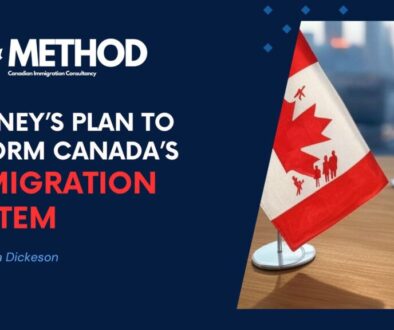Navigating the Horizon: a Comprehensive Overview of Canada’s Immigration Landscape in 2024
Immigration, Refugees, and Citizenship Canada (IRCC) is spearheading a series of transformative changes set to significantly impact newcomers to Canada in 2024. The cornerstone of these changes is the Immigration Levels Plan for 2024-2026, where Canada aspires to embrace a total of 485,000 permanent residents (PRs) in 2024. Alongside this ambitious immigration goal, Canada is poised to roll out comprehensive updates across various programs while harnessing the power of Artificial Intelligence (AI) to streamline and enhance the overall client experience.
A pivotal aspect of these changes is reflected in the updates to the Express Entry System. In 2023, IRCC commenced category-based Express Entry draws, strategically designed to identify foreign nationals best suited to address the nation’s most pressing labor gaps and demographic needs. The selection criteria included prioritizing individuals with French language proficiency and recent work experience in key industries such as Healthcare, STEM (Science, Engineering, Technology, and Mathematics), and Trades, Transport, and Agri-Food/Agriculture.
As we look ahead to 2024, IRCC is anticipated to persist with category-based draws. However, the department has underscored its commitment to reassess the focus categories chosen in 2023, potentially modifying them based on the evolving needs of Canada’s labor market. This implies that new sectors and proficiencies may emerge as focal points, expanding the eligibility for category-based Express Entry draws in the upcoming year.
In parallel, significant developments are occurring within the Provincial Nominee Program (PNP). As a vital immigration pathway that empowers local governments to hand-select candidates to address labor market gaps, PNPs are slated to become the country’s most prominent immigration pathway in 2024, according to the latest Immigration Levels Plan.
Provinces have received a new set of guiding principles for PNPs, and the introduction of multi-year plans from 2024 onwards is poised to enhance provincial and territorial immigration strategies, providing a more transparent allocation process.
Moreover, there’s promising news for applicants under the Parents and Grandparents Program (PGP). While Canada aimed to welcome 28,500 immigrants through the PGP in 2023, the Immigration Levels Plan for 2024 indicates an increase in PGP targets to 32,000. IRCC’s potential improvements in “intake management and the alignment of [application] inputs and outputs” may pave the way for more PGP applicants to find a new home in Canada in the coming year.
The International Student Program is undergoing significant enhancements to fortify its integrity and protect incoming foreign nationals. IRCC has launched a reformed Letter of Acceptance (LOA) verification system, requiring Designated Learning Institutions (DLIs) across Canada to confirm every applicant’s LOA directly with IRCC. This stringent yet necessary measure aims to shield prospective students from fraud, ensuring study permits are issued solely on genuine LOAs.
Furthermore, IRCC has announced a comprehensive review of the Post-Graduation Work Permit (PGWP) program. This program is vital for many international students intending to apply for permanent residency, as the Comprehensive Ranking System (CRS) score favors Canadian work experience. The anticipated reforms aim to better align the PGWP with the country’s labor market needs and regional and Francophone immigration goals.
Looking beyond 2024, IRCC is committed to implementing various changes to enhance the experience and life of Canadian newcomers navigating the immigration process. A pivotal initiative involves a heightened integration of AI and technology, aiming to reduce processing times, improve tools for IRCC officers, and align with Canada’s immigration and diversity priorities. This digital transformation seeks to enhance the client experience through improved service standards, strengthened partnerships with employers and institutions relying on immigration, and increased user-friendliness via digital and virtual technologies.
To ensure a more inclusive and informed approach to immigration policies, IRCC is set to establish a new advisory board. This unique board will include individuals with lived experience in immigration, providing a platform for newcomers to influence programs and processes affecting them directly. The board’s establishment is a strategic move to strengthen policy and program development, anchoring Canada’s immigration system in a human-centric approach.
Adding another layer to these changes is the introduction of the Chief International Talent Officer (CITO). This novel role is designed to enhance the alignment between Canada’s immigration system and its national labor market and sectoral strategies. The responsibilities vested in the CITO are expected to bring about substantial changes in Canada’s annual immigration landscape, emphasizing the importance of prospective immigrants staying attuned to developments once the role is appointed.
In conclusion, the evolving landscape of Canadian immigration in 2024 encompasses a multifaceted approach, touching upon various programs and pathways. From Express Entry System modifications to PNP advancements, increased PGP targets, and enhancements in the International Student Program, these changes aim to create a more robust, efficient, and inclusive immigration system for newcomers to Canada.
The commitment to leveraging AI and technology, establishing an advisory board, and introducing the Chief International Talent Officer signifies Canada’s dedication to staying at the forefront of global talent attraction while maintaining a human-centric perspective in its immigration policies. As the year unfolds, prospective immigrants to Canada are encouraged to stay informed about these dynamic changes that will shape their journey toward a new life in the Great White North.



